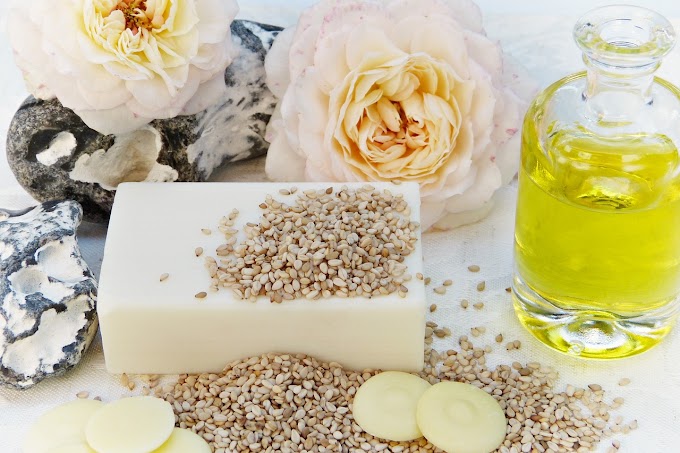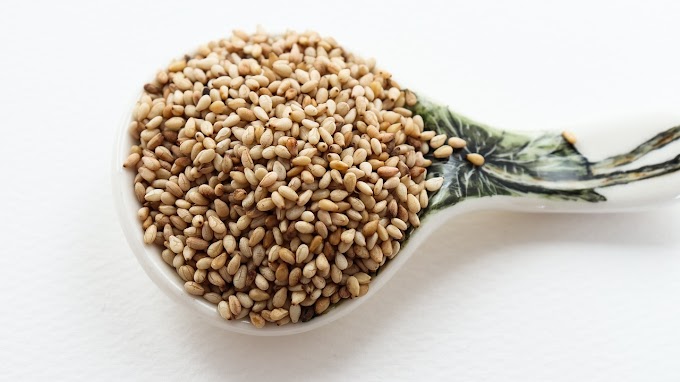"BEST HERBS FOR RELIEVING CRAMPS DURING MENSTRUATION"
Introduction
Menstrual health is a crucial aspect of a woman's overall well-being. The menstrual cycle is a complex interplay of hormones and biological processes that occur within the female reproductive system. Many women experience discomfort, mood swings, and other symptoms during their menstrual cycle, and maintaining optimal menstrual health is essential for a woman's quality of life. In addition to a healthy lifestyle and regular exercise, vitamins and herbs play a significant role in supporting menstrual health. This article explores the various vitamins and herbs that can positively impact menstrual health, providing insights into their mechanisms and potential benefits.
Vitamins for Menstrual Health:
Vitamin B Complex:
The B-vitamin complex, including B1 (thiamine), B2 (riboflavin), B3 (niacin), B5 (pantothenic acid), B6 (pyridoxine), B7 (biotin), B9 (folic acid), and B12 (cobalamin), plays a crucial role in maintaining overall health, including menstrual health.
B6 (Pyridoxine): Known for its role in neurotransmitter synthesis, B6 helps alleviate mood swings and irritability associated with premenstrual syndrome (PMS).
B9 (Folic Acid): Folic acid supports the production of red blood cells, reducing the risk of anemia during menstruation.
B12 (Cobalamin): Essential for nerve function and energy production, B12 helps combat fatigue and lethargy often experienced during menstruation.
The B-vitamin complex, including B1 (thiamine), B2 (riboflavin), B3 (niacin), B5 (pantothenic acid), B6 (pyridoxine), B7 (biotin), B9 (folic acid), and B12 (cobalamin), plays a crucial role in maintaining overall health, including menstrual health.
B6 (Pyridoxine): Known for its role in neurotransmitter synthesis, B6 helps alleviate mood swings and irritability associated with premenstrual syndrome (PMS).
B9 (Folic Acid): Folic acid supports the production of red blood cells, reducing the risk of anemia during menstruation.
B12 (Cobalamin): Essential for nerve function and energy production, B12 helps combat fatigue and lethargy often experienced during menstruation.
Vitamin D:
Vitamin D is vital for bone health and immune function. Recent studies suggest a potential link between vitamin D deficiency and menstrual irregularities. Ensuring an adequate vitamin D intake may contribute to regular menstrual cycles.Vitamin E:
As a powerful antioxidant, vitamin E helps reduce inflammation and may alleviate menstrual pain. It also supports hormonal balance, making it beneficial for overall menstrual health.Vitamin C:
Vitamin C is known for its immune-boosting properties, but it also aids in the absorption of iron, an essential mineral for preventing anemia during menstruation. Additionally, vitamin C may help reduce the intensity and duration of menstrual cramps.Herbs for Menstrual Health:
Chaste Tree (Vitex agnus-castus):
Chaste tree, also known as Vitex, has a long history of use in supporting women's reproductive health. It may help regulate menstrual cycles by balancing hormones, particularly reducing symptoms of PMS and irregular periods.
Chaste tree, also known as Vitex, has a long history of use in supporting women's reproductive health. It may help regulate menstrual cycles by balancing hormones, particularly reducing symptoms of PMS and irregular periods.
Dong Quai (Angelica sinensis):
Dong Quai is a traditional Chinese herb known for its potential benefits in regulating the menstrual cycle. It is believed to help alleviate menstrual pain and may act as a uterine tonic.
Dong Quai is a traditional Chinese herb known for its potential benefits in regulating the menstrual cycle. It is believed to help alleviate menstrual pain and may act as a uterine tonic.
Red Clover (Trifolium pratense):
Red clover contains compounds known as isoflavones, which have estrogen-like effects in the body. These may contribute to hormonal balance, potentially easing menstrual discomfort and regulating cycles.
Red clover contains compounds known as isoflavones, which have estrogen-like effects in the body. These may contribute to hormonal balance, potentially easing menstrual discomfort and regulating cycles.
Raspberry Leaf (Rubus idaeus):
Raspberry leaf tea is often recommended for women's reproductive health. It is believed to tone the uterine muscles, potentially reducing menstrual cramps and supporting overall menstrual well-being.
Raspberry leaf tea is often recommended for women's reproductive health. It is believed to tone the uterine muscles, potentially reducing menstrual cramps and supporting overall menstrual well-being.
Turmeric (Curcuma longa):
Curcumin, the active compound in turmeric, possesses anti-inflammatory properties. This makes turmeric a potential natural remedy for reducing menstrual pain and inflammation associated with PMS.
Curcumin, the active compound in turmeric, possesses anti-inflammatory properties. This makes turmeric a potential natural remedy for reducing menstrual pain and inflammation associated with PMS.
Ginger (Zingiber officinale):
Ginger is known for its anti-nausea and anti-inflammatory properties. It may help alleviate menstrual nausea and pain, making it a valuable herb for menstrual health.
Ginger is known for its anti-nausea and anti-inflammatory properties. It may help alleviate menstrual nausea and pain, making it a valuable herb for menstrual health.
Vitamins and Herbs for Maximum Impact:
While vitamins and herbs individually offer benefits for menstrual health, combining them strategically can provide a holistic approach to support women's well-being.Here are some guidelines for incorporating both into your routine:
 |
| Pad |
Consult with a Healthcare Professional:
Before starting any vitamin or herbal regimen, it's essential to consult with a healthcare professional. They can assess your individual health needs and provide personalized recommendations.
Balanced Diet: Focus on a balanced diet rich in fruits, vegetables, whole grains, and lean proteins. Ensure you get a variety of vitamins and minerals through your diet to support overall health.
Supplements: If needed, consider supplements to fill nutritional gaps. Choose a high-quality multivitamin that includes essential B vitamins, vitamin D, vitamin E, and other crucial nutrients.
Herbal Teas and Tinctures: Incorporate herbal teas or tinctures into your routine. Raspberry leaf tea, ginger tea, and other herbal preparations can be soothing and supportive during menstruation.
Regular Exercise: Combine your nutritional approach with regular exercise. Physical activity can help alleviate menstrual symptoms and contribute to overall well-being.
Stress Management: Practice stress management techniques such as meditation, yoga, or deep breathing. Chronic stress can impact hormonal balance, potentially affecting menstrual health.
Balanced Diet: Focus on a balanced diet rich in fruits, vegetables, whole grains, and lean proteins. Ensure you get a variety of vitamins and minerals through your diet to support overall health.
Supplements: If needed, consider supplements to fill nutritional gaps. Choose a high-quality multivitamin that includes essential B vitamins, vitamin D, vitamin E, and other crucial nutrients.
Herbal Teas and Tinctures: Incorporate herbal teas or tinctures into your routine. Raspberry leaf tea, ginger tea, and other herbal preparations can be soothing and supportive during menstruation.
Regular Exercise: Combine your nutritional approach with regular exercise. Physical activity can help alleviate menstrual symptoms and contribute to overall well-being.
Stress Management: Practice stress management techniques such as meditation, yoga, or deep breathing. Chronic stress can impact hormonal balance, potentially affecting menstrual health.
Conclusion:
Optimal menstrual health is crucial for women to lead a fulfilling and active life. Vitamins and herbs can play a significant role in supporting menstrual well-being by addressing hormonal balance, reducing inflammation, and easing menstrual symptoms. While these natural remedies can be valuable, it's essential to approach them as part of a holistic lifestyle that includes a balanced diet, regular exercise, and stress management. Always consult with a healthcare professional before making significant changes to your diet or incorporating new supplements and herbs into your routine. With a comprehensive and informed approach, women can enhance their menstrual health and promote overall vitality.FAQ's
Can vitamins and herbs replace medical treatments for menstrual issues?No, vitamins and herbs can be complementary to medical treatments, but they should not replace professional medical advice. Consult with a healthcare professional to discuss your symptoms and receive personalized recommendations.
Are there specific vitamins that can help with menstrual cramps? Vitamins such as B6, E, and C have anti-inflammatory properties and may help reduce menstrual cramps. However, individual responses vary, and it's essential to consult with a healthcare professional for personalized advice.
How can I incorporate herbs into my routine for menstrual health? Herbs can be consumed as teas, tinctures, or supplements. Raspberry leaf tea, ginger tea, and other herbal preparations can be soothing during menstruation. Consult with a healthcare professional for proper dosage and recommendations.
Is it safe to take herbal supplements alongside prescribed medications?
Are there specific vitamins that can help with menstrual cramps? Vitamins such as B6, E, and C have anti-inflammatory properties and may help reduce menstrual cramps. However, individual responses vary, and it's essential to consult with a healthcare professional for personalized advice.
How can I incorporate herbs into my routine for menstrual health? Herbs can be consumed as teas, tinctures, or supplements. Raspberry leaf tea, ginger tea, and other herbal preparations can be soothing during menstruation. Consult with a healthcare professional for proper dosage and recommendations.
Is it safe to take herbal supplements alongside prescribed medications?
It's crucial to consult with a healthcare professional before combining herbal supplements with prescribed medications. Some herbs may interact with medications, affecting their effectiveness or causing unwanted side effects.
Can vitamins and herbs regulate irregular menstrual cycles?
Can vitamins and herbs regulate irregular menstrual cycles?
Vitamins and herbs, such as B vitamins, chaste tree (Vitex), and dong quai, are believed to help regulate menstrual cycles. However, individual responses vary, and it's important to address underlying health issues with the guidance of a healthcare professional.
How long does it take for vitamins and herbs to show results for menstrual health?
How long does it take for vitamins and herbs to show results for menstrual health?
The timeline for experiencing results can vary depending on individual factors and the specific vitamin or herb. Some may notice improvements within a menstrual cycle, while others may take longer. Patience and consistency are key.
Are there any side effects associated with herbal remedies for menstrual health?
Are there any side effects associated with herbal remedies for menstrual health?
While herbs are generally considered safe, they may have side effects or interactions with medications. For example, excessive consumption of ginger may cause digestive upset. Always consult with a healthcare professional and follow recommended dosages.
Can a balanced diet alone provide all the necessary vitamins for menstrual health?
Can a balanced diet alone provide all the necessary vitamins for menstrual health?
A balanced diet is essential for overall health, but individual nutritional needs may vary. In some cases, supplements may be recommended to fill nutritional gaps. Consult with a healthcare professional to determine your specific requirements.
Are there specific vitamins or herbs recommended for women with heavy menstrual bleeding?
Are there specific vitamins or herbs recommended for women with heavy menstrual bleeding?
Vitamins such as B9 (folic acid) and iron are crucial for preventing anemia associated with heavy bleeding. Herbs like red clover and dong quai may have benefits in supporting overall reproductive health, but personalized advice is essential.
Can stress impact menstrual health, and how can it be managed?
Can stress impact menstrual health, and how can it be managed?
Yes, chronic stress can affect hormonal balance and menstrual health. Stress management techniques such as meditation, yoga, and deep breathing can be helpful. Consult with a healthcare professional for personalized strategies to manage stress.







